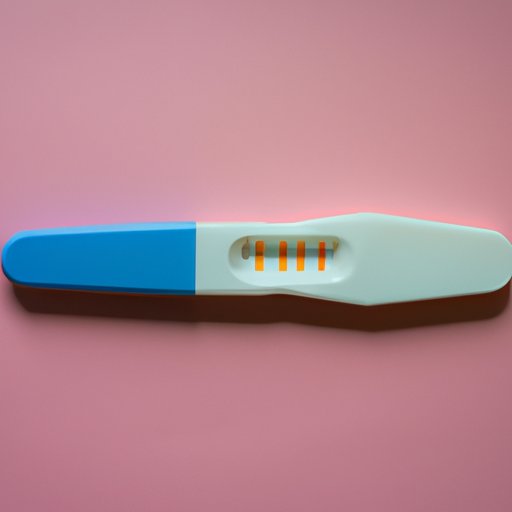
Introduction
Many women who are eagerly trying to conceive are often unsure of when the best time to take a pregnancy test is. After all, timing is everything when it comes to testing for pregnancy, as taking the test too early can result in inaccurate results. In this article, we will explore how many days past ovulation you can test and what factors affect the accuracy of the test.
Understanding Ovulation
Ovulation is the process in which a woman’s body releases an egg from the ovary. This egg will then travel down the fallopian tube where it can potentially be fertilized by sperm. The best time to conceive is during ovulation, which usually occurs around day 14 of a 28-day menstrual cycle.
Tracking ovulation is essential in determining the best time to try and conceive. A woman’s menstrual cycle can vary in length, making it challenging to predict ovulation accurately. One of the most accurate methods of tracking ovulation is through the use of an ovulation predictor kit, which can detect the LH hormone surge that occurs before ovulation.
How Pregnancy Tests Work
Pregnancy tests detect the hormone human chorionic gonadotropin (hCG), which is produced by the placenta after a fertilized egg implants in the uterus. There are two main types of pregnancy tests available: urine tests and blood tests. Urine tests are most commonly used as they are convenient and less invasive. Blood tests, on the other hand, can detect pregnancy earlier than urine tests and are more accurate.
The accuracy of pregnancy tests can vary depending on several factors, including the type of test used, the time of day the test is taken, and the person’s individual body chemistry.
Factors That Affect the Accuracy of the Test
The accuracy of a pregnancy test can be influenced by a variety of factors, including the time of day, the amount of fluids consumed, and medications taken. Drinking large amounts of fluids or taking medications that contain hCG can interfere with the accuracy of the test.
The type of test used can also affect the accuracy of the results. Some pregnancy tests are more sensitive than others, meaning they can detect lower levels of hCG. As a result, tests with higher sensitivity will likely give more accurate results earlier in pregnancy.
When to Take a Pregnancy Test
The best time to take a pregnancy test is after a missed period. However, this can vary depending on the person’s menstrual cycle length. If you have irregular periods or are unsure of when your next period is due, it is recommended to wait at least two weeks after intercourse before taking a pregnancy test.
Most pregnancy tests claim to detect hCG levels as low as 25 mIU/mL, which can typically be detected between 10-14 days after ovulation. However, this can vary depending on the person’s individual body chemistry and when the fertilized egg implanted in the uterus.
Keep in mind that taking a pregnancy test too early can result in a false negative. It is recommended to wait until after a missed period or at least two weeks after intercourse to take a pregnancy test.
The Dangers of Testing Too Early
Testing too early can lead to false positives, which can be emotionally devastating for those trying to conceive. False positives are often caused by chemical pregnancies, where the fertilized egg does not implant correctly. In these cases, the pregnancy test detects hCG in the urine, even though the pregnancy was not viable.
Additionally, testing too early can cause unnecessary stress and anxiety. It is essential to remember that not getting pregnant right away is normal, and there are many factors that can affect fertility.
Conclusion
Knowing the right time to take a pregnancy test is essential for those trying to conceive. Understanding ovulation, the accuracy of pregnancy tests, and the factors that affect their accuracy can help increase the chance of accurate results.
It is essential to wait until after a missed period or at least two weeks after intercourse to take a pregnancy test. Additionally, seeking help from healthcare professionals is recommended for those struggling with infertility or trying to conceive.





